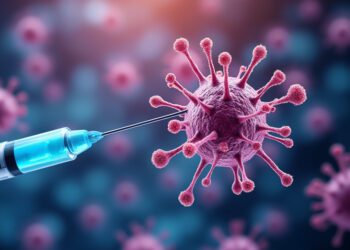Study: “Aging and neuronal death”
Publisher: Aging
Published date: December 2023
PubMed link to study: https://pubmed.ncbi.nlm.nih.gov/38095614/
Recent research highlights the resilience of neurons and their capacity to withstand various forms of stress throughout the human lifespan. Understanding the intrinsic mechanisms that contribute to their longevity could have significant implications for improving our health as we age.
The impact of this research is significant, with the potential to inform interventions that could prevent or delay the onset of neurodegenerative conditions, thereby improving quality of life in aging populations.
Feel welcome to share your own thoughts on this research in the comment section below as well. I will be happy to discuss and learn more about how you see its potential in this field.
Tracking neuronal longevity
The recent study by Cui and colleagues offers a significant advancement in monitoring and promoting neuron health. Using a luciferase reporter system linked to the tyrosine hydroxylase gene, researchers can non-invasively track the well-being of neurons derived from human pluripotent stem cells. Their screening revealed a molecule that modulates histone H3K79 methyltransferase, a regulator of gene transcription, which could be crucial for neuron maintenance.
Neuronal self-defense
To combat the risks of their environment, neurons have developed several self-defense mechanisms. They maintain a delicate balance of ROS, which play a dual role in signaling and inducing stress. Neurons employ neurotrophic factors to enhance mitochondrial efficiency and regulate their transcriptome to prevent excess neural activity. Their specialized DNA repair systems correct errors from active transcription, and they can avoid apoptosis by alternate splicing to suppress pro-apoptotic genes.
These intrinsic survival strategies of neurons are a complex defense system against the accumulation of aging-related damages. Any disruption to these systems can lead to a loss of homeostasis and neuronal degeneration. By understanding these mechanisms, researchers hope to develop therapeutic strategies that could enhance brain health and longevity.
The future of neuronal research
The clarification of these self-preservation mechanisms has implications for enhancing neuron survival, potentially leading to interventions for age-related neurological decline. As research tools evolve, we get closer to translating these findings into clinical applications. Understanding how neurons maintain homeostasis and prevent damage may unlock new approaches to prevent neurodegenerative diseases and improve our healthspan.
Moving forward, the continued exploration of neuronal resilience and maintenance mechanisms could pave the way for breakthroughs in combating age-associated brain decline, ultimately contributing to a healthier, more vibrant aging process.




